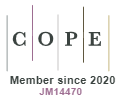Resultados de um programa de cessação tabagística: análise de novos procedimentos
DOI:
https://doi.org/10.5585/conssaude.v13n3.4894Palavras-chave:
Abandono do uso de tabaco, Hábito de fumar, Política de saúde, Saúde pública.Resumo
Introdução: O tabagismo pode ser tratado com eficácia por terapias com enfoque na abordagem cognitivo-comportamental, sendo imprescindível a descrição minuciosa desta. Objetivo: Descrever um programa de cessação tabagística com novos procedimentos e avaliar seu índice de sucesso. Métodos: Participantes de um programa de cessação tabagística, baseado em terapias cognitivas comportamentais e farmacológicas, foram acompanhados por um ano, e a taxa de cessação avaliada foi, no mínimo, de seis meses, após pararem de fumar. Foram implementados os seguintes procedimentos: intensificação na frequência dos encontros (duas vezes semanais); data de cessação pré-estabelecida pelos terapeutas do programa, primeiro encontro com apresentação do tratamento, esclarecimento de dúvidas e motivação dos pacientes e participação de ex-tabagistas para incentivar os iniciantes. Resultados: Dos 145 indivíduos que participaram do estudo, observou-se um índice de sucesso de 64,42% durante o acompanhamento. Conclusão: Os novos procedimentos realizados neste programa de cessação tabagística proporcionaram alto índice de sucesso de abstinência, quando comparados a outros da literatura.Downloads
Downloads
Publicado
02.10.2014
Como Citar
1.
Freire APCF, Ramos D, Silva BS de A, David RM, Pestana PR da S, Fernandes RA, et al. Resultados de um programa de cessação tabagística: análise de novos procedimentos. Cons. Saúde [Internet]. 2º de outubro de 2014 [citado 22º de maio de 2025];13(3):396-404. Disponível em: https://periodicos.uninove.br/saude/article/view/4894
Edição
Seção
Artigos
Licença
Copyright (c) 2014 ConScientiae Saúde

Este trabalho está licenciado sob uma licença Creative Commons Attribution-NonCommercial-ShareAlike 4.0 International License.
Visualizações
- Resumo 350
- PDF 258









